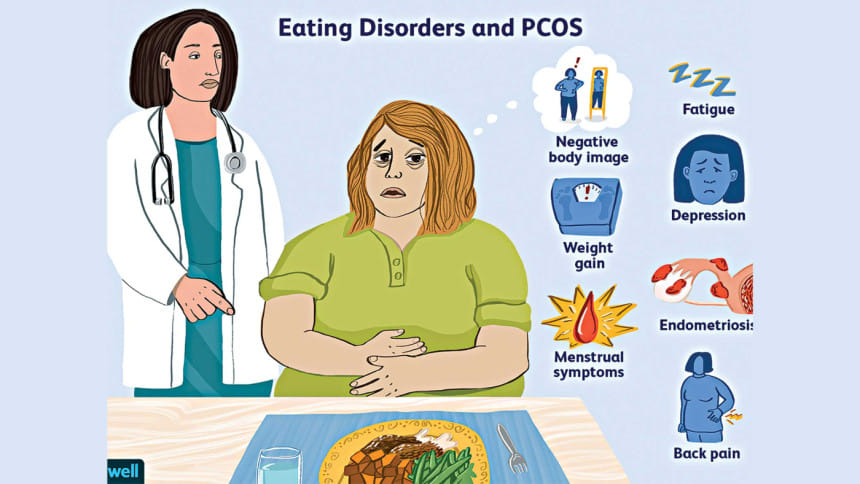Polycystic ovary syndrome: Mental health and lifestyle modification

Polycystic ovary syndrome (PCOS) is a hormonal disorder common among women of reproductive age. Women with PCOS may have infrequent or prolonged menstrual periods or excess male hormone levels. The ovaries may develop numerous small fluid collections and fail to release eggs regularly.
PCOS is a chronic, complex and the most common endocrine disorder observed in women of reproductive age. Research shows that PCOS affects 6 to 10% of women of reproductive age. It is a significant public health issue. The prevalence is quite high and is increasing day by day. It is a syndrome to be prevented by awakening awareness among health workers and patients.
PCOS have a significant negative impact on women's health-related quality of life and psychological function. Globally, there has been an increasing focus on this aspect because it is a reflection of the true impact of the condition on the patients' lives.
The prevalence of anxiety and depression is high in PCOS. Emotional distress could have psychosocial and/or pathophysiological causes. Visible features such as hirsutism (appearance of thick, dark hair in unwanted regions of the body), acne and alopecia (hair loss), menstrual irregularity, infertility, and obesity can be deeply affected stigmatising to women. In a qualitative study on the subjective experience of PCOS, women described as feeling robbed of their self-concept essence of being feminine and attractive, thus making PCOS the "thief of womanhood."
It has been shown that active women with PCOS report fewer depressive symptoms than inactive women with PCOS. Many experimental studies that demonstrate positive outcomes of exercise in terms of PCOS management consider multiple lifestyle modifications, combining diet, physical activity, and motivational support sessions. Lifestyle modification, including physical activity, is recommended as the primary management strategy for PCOS as it reduces insulin resistance, improves metabolic and reproductive features of PCOS and improves body image. Individualised exercise programs increase compliance and group or home exercise and walking as potential exercise modes for women with PCOS.
In the Australian guidelines for PCOS management, the authors suggest at least 150 minutes of physical activity participation each week. Physical exercise improves menstrual irregularity cardiorespiratory fitness and reduces mental disorders while decreasing waist circumference and body fat. Physical exercises are the non-pharmacological treatment of PCOS. So, it is imperative to take into account mental health and lifestyle modification for PCOS patients.
PCOS is both preventable and curable. The multi-functional combined approach is needed to prevent and treat the disease. More importantly, girls and women should avoid carbohydrates and eat more fruits and vegetables. In addition, they must be careful not to get overweight and obese. So, stay healthy to prevent PCOS. If you feel PCOS-related symptoms physically, consult your doctor earlier to get proper treatment.
The writer is an Assistant Professor of Biochemistry & Molecular Biology, at Medical College for Women and Hospital, Uttara, Dhaka.

 For all latest news, follow The Daily Star's Google News channel.
For all latest news, follow The Daily Star's Google News channel. 



Comments